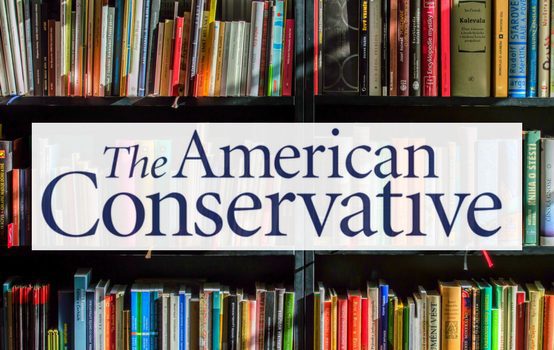TAC Bookshelf: Chesterton the Idealist, Burke the Atheist

Grayson Quay, TAC contributor: In a 2019 appearance on “Tucker Carlson Tonight,” TAC executive director Johnny Burtka outlined a new conservative economic agenda that broke with Republican orthodoxy on several points. Carlson, playing devil’s advocate, asked Burtka how he would answer those on the right who said he wasn’t allowed to suggest such a thing. “We can do whatever we want, Tucker,” Burtka replied.
A similar spirit animates G.K. Chesterton’s What’s Wrong With the World, a short 1910 volume in which Chesterton rails against “the view that because we have got into a mess we must grow messier to suit it; that because we have taken a wrong turn some time ago we must go forward and not backwards; that because we have lost our way we must lose our map also; and because we have missed our ideal, we must forget it.” Political realities should, and can, be adapted to human ideals, not human ideals to political realities. Perhaps the one good legacy of the Trump administration will be the shattering (or at least cracking) of the ossified neolib/neocon consensus that dominated two decades of American politics and threatened to pull us into a death spiral of late-Roman decadence. Of course, it’s a shame that it was right-wing derangement that ended up disrupting the status quo, and it’s possible that this disruption might just abridge our decadence by hastening our downfall. But I digress.
Chesterton’s idealism is a refreshing exhortation to transcend the familiar binaries of our partisan debates, a rebuke to the idea that “the genie is out of the bottle” on as many issues as we assume. What is called progress, he argues, is frequently based on precedent rather than on principle. It is neither bold nor creative, but merely the latest outworking of ideas we have long since come to accept uncritically.
He then applies this method to a number of political issues that faced England in his time. Some, such as his chapter on education, are sufficiently “in the weeds” as to be difficult to apply to our present moment, but his chapter opposing women’s suffrage was absolutely fascinating. I have no plans to campaign against votes for women, but Chesterton did me a favor in reminding me that it was once a live debate rather than, as history would have us think, a black-and-white struggle of truth and goodness against hate and oppression. Chesterton’s argument, which appealed to my conservative instincts, was that for most of history, half of humanity had existed largely outside of the market and the state. Women produced goods, provided services, and made decisions only for and in the home. In women’s suffrage, Chesterton saw an elite conspiracy to extend government and corporate power, leaving nothing and no one outside their grasp. I don’t agree with making such a distinction purely on the basis of gender, but Chesterton did convince me that much of our idolization of voting rights and equal pay is based on our unconscious belief that the state and the market are the source and locus of one’s identity.
The part of the book I’ve grappled with most, though, is his claim that Robespierre’s politics were more Christian than those of Edmund Burke, whom Chesterton accuses of atheism (in practice, not in creed). His argument is that Robespierre had a transcendent ideal of justice for which he was willing to tear down the entire system, while Burke’s anti-utopian localism was the creed of a moral relativist. My instincts are more on the side of Burke, but Chesterton does identify a real temptation that assails and even conquers many conservatives. In college, I had a professor who was smitten by Wendell Berry and insisted that, as a Southerner, he’d have fought for the Confederacy in the Civil War simply because it was his home. If that is conservatism, then to hell with it.